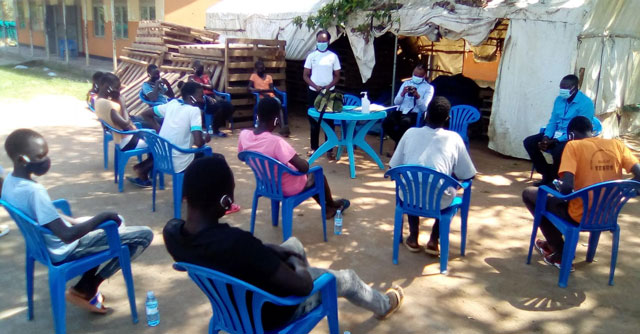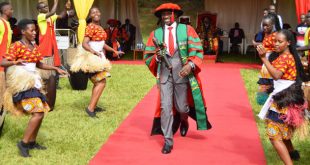
Adjumani, Uganda | THE INDEPENDENT | Language barrier is affecting the government responses on COVID 19 in the refugee settlements in West Nile Region, URN has learnt. James Deng Ateny, the Secretary General for the Refugee Council in West Nile told URN in an interview early this week that all COVID-19 preventive messages are in English and the host community language that the refugees don’t understand.
He has asked the government to recruit interpreters to ease communication to help explain the COVID-19 response messages in the settlements. Charles Druma, the Chairperson of Adjumani District NGO Forum and a member of the District COVID 19 Task Force has acknowledged the knowledge gap in the COVID-19 responses amongst refugees.
Druma has also asked the government to reconsider several approaches aimed at involving the refugee community in fighting the virus. Details from a joint research released by the Center for Health and Social Economic Improvement, Makerere University, Gulu University and Ministry of Health early this week point the knowledge gap among refugees in relation to responses against COVID-19 at 40 per cent.
The three months of study was conducted between September and November this year to access compliance with the COVID-19 directives in settlements and refugee experience with the pandemic in Kisenyi in Kampala, Kyaka II in Kyegegwa and Adjumani District.
The study further revealed that the refugees that come from the Muslim faith have better compliance levels to the directives compared to their Christian counterparts. Dr. Betty Okot, the Co-Investigator in the finding says the pandemic has increased the vulnerabilities of the refugees to COVID-19 infection.
She said there is need to scale up COVID-19 response among refugees.
The key risky behaviours highlighted in the report that is likely to fuel COVID-19 transmission in the settlements include poor hygiene and congestion. According to the Adjumani District COVID-19 Taskforce, 55 of the 198 positive COVID-19 cases were from the refugee settlements.
********
URN
 The Independent Uganda: You get the Truth we Pay the Price
The Independent Uganda: You get the Truth we Pay the Price


